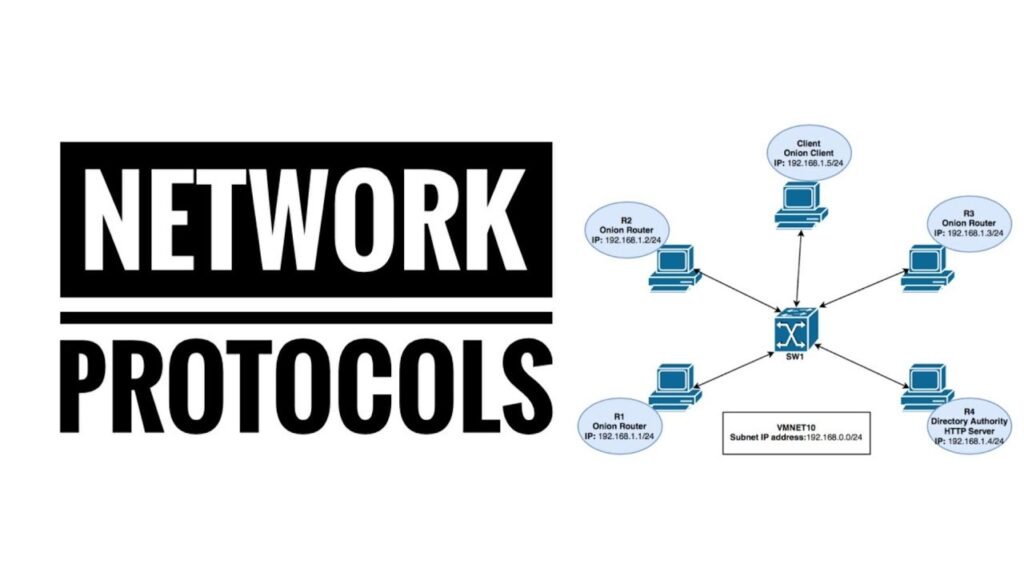In today’s digitally driven world, the role of a network professional is more critical than ever. As businesses rely heavily on robust and secure network infrastructures to maintain operations, the demand for skilled network professionals continues to rise. To thrive in this competitive field, network professionals must possess a unique blend of technical and soft skills. This article explores the top 10 essential skills every network professional must have to succeed in the industry.
1. Deep Understanding of Network Protocols
Network protocols are the backbone of all communication within a network. A network professional must be well-versed in key protocols such as TCP/IP, DNS, DHCP, HTTP/HTTPS, and SNMP. These protocols govern the transmission of data across networks and are fundamental to ensuring seamless connectivity. Understanding how these protocols interact and troubleshoot issues related to them is crucial for maintaining network health.

2. Proficiency in Network Design and Architecture
The ability to design and implement efficient network architectures is a vital skill for any network professional. This involves understanding the requirements of the business and designing a network that meets those needs while being scalable, secure, and cost-effective. Knowledge of different types of networks, such as LAN, WAN, VPN, and cloud networks, is essential. Additionally, familiarity with network topologies, such as star, mesh, and hybrid, allows professionals to design networks that optimize performance and reliability.
3. Mastery of Network Security
As cyber threats continue to evolve, network security has become a top priority for organizations. Network professionals must have a strong understanding of security principles, including encryption, firewalls, intrusion detection/prevention systems (IDS/IPS), and VPNs. Additionally, being skilled in the implementation of security policies and the ability to conduct regular security audits is crucial to protect the network from breaches. Keeping up with the latest security trends and vulnerabilities is also essential for proactive threat management.
4. Troubleshooting and Problem-Solving Skills
No network is immune to issues, and when problems arise, network professionals must be able to troubleshoot and resolve them quickly. This requires a systematic approach to identify the root cause of network issues, whether they are related to hardware, software, or configuration errors. Strong analytical skills, attention to detail, and the ability to remain calm under pressure are critical in ensuring minimal downtime and maintaining network integrity.
5. Experience with Network Monitoring Tools
Monitoring the health and performance of a network is a continuous task. Network professionals should be proficient in using network monitoring tools like Nagios, SolarWinds, and Wireshark. These tools help in tracking network traffic, identifying bottlenecks, and detecting potential issues before they escalate into significant problems. Understanding how to interpret data from these tools and take appropriate actions is key to ensuring optimal network performance.
6. Knowledge of Cloud Networking
As more businesses migrate to cloud platforms, network professionals need to understand cloud networking concepts and architectures. Familiarity with cloud service providers like AWS, Azure, and Google Cloud is essential, as is understanding how to integrate on-premises networks with cloud environments. Skills in managing virtual networks, setting up hybrid cloud solutions, and ensuring secure data transmission between cloud and on-premises systems are becoming increasingly important.
7. Proficiency in Scripting and Automation
Automation is revolutionizing network management, and proficiency in scripting languages like Python, Perl, or Bash is a valuable skill for network professionals. Automation tools and scripts can help in managing repetitive tasks, such as configuring devices, monitoring network performance, or managing security protocols. By leveraging automation, network professionals can improve efficiency, reduce the likelihood of human error, and focus on more strategic tasks.
8. Strong Communication and Collaboration Skills
While technical expertise is essential, network professionals must also possess strong communication and collaboration skills. These skills are necessary for effectively conveying complex technical concepts to non-technical stakeholders and collaborating with other IT teams. Whether it’s documenting network configurations, presenting security recommendations, or working with vendors, the ability to communicate clearly and work well in a team environment is crucial for the success of any network project.
9. Project Management Capabilities
Network professionals often find themselves leading or contributing to network-related projects, such as upgrades, migrations, or new implementations. Project management skills, including planning, resource allocation, time management, and risk assessment, are essential to ensure projects are completed on time and within budget. Familiarity with project management methodologies, such as Agile or Waterfall, can also be beneficial in aligning network projects with broader business goals.
10. Commitment to Continuous Learning
The field of networking is constantly evolving, with new technologies, tools, and best practices emerging regularly. A successful network professional must be committed to continuous learning and professional development. This can involve pursuing advanced certifications, attending industry conferences, participating in online courses, and staying updated with the latest trends in networking. A proactive approach to learning ensures that network professionals remain competitive and are well-equipped to handle the challenges of tomorrow.
Conclusion
Being a network professional requires a diverse set of skills that go beyond technical know-how. Mastering the top 10 essential skills outlined in this article will not only make you an invaluable asset to any organization but also pave the way for a successful and rewarding career in networking. As the industry continues to evolve, staying current with emerging trends and continuously honing your skills will ensure that you remain at the forefront of this dynamic field.

